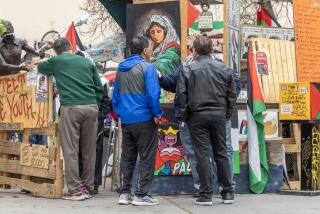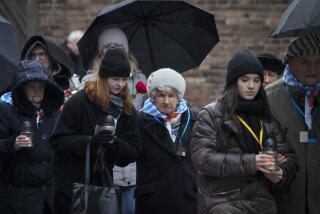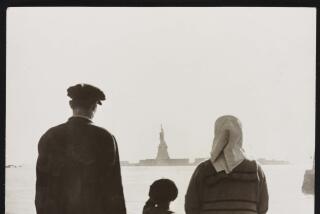Speakers Will Provide 3 Views of Holocaust : History: A CSUN program is scheduled to examine Nazi atrocities and their long-term implications.
A symposium commemorating the 50th anniversary of the liberation of Nazi concentration camps is scheduled to be held Tuesday at Cal State Northridge and will feature three perspectives on the Holocaust.
Speakers will include actor and death camp survivor Robert Clary; U.S. Immigration Judge Bruce Einhorn, a war crimes prosecutor during the Nuremberg trials; and retired Col. James H. Hayes, who helped liberate the Ohrdug and Buchenwald concentration camps.
“The fact that such atrocities occurred only 50 years ago needs to be told and retold again so we may continue to have historical perspective,” said CSUN’s radio-television-film department chairwoman Judith Marlane, who is coordinating the panel.
“The three guest speakers can give breadth to a crucial and important period in American history,” she added.
“We still live in a society in which cruelty and horrific acts are commonplace, and we should continue examining that.”
Clary, who played the character Louis LeBeau in the ‘60s TV show “Hogan’s Heroes,” said he went many years without publicly acknowledging the long-term effects of the concentration camp experience.
After acting in the show--which spoofed a Nazi prison camp--for six years, Clary joined the Simon Wiesenthal Center in 1980.
Since then, he has tried to spread the message: “A world with hate is a doomed world.”
Arrested in France at the age of 16, Clary endured three years of hard work, torture and terrible living conditions in various camps. He offers his experiences to mostly young audiences, he said, in hopes of motivating them to reverse the cycle of hatred that has characterized the 20th Century.
“Unfortunately, we don’t learn from history,” Clary said. “Our world has become a dangerous place. What happened in Oklahoma City is another version of what happened back then. We have to try to reach some young people so they may change things. It’s their world.”
More to Read
Sign up for Essential California
The most important California stories and recommendations in your inbox every morning.
You may occasionally receive promotional content from the Los Angeles Times.










